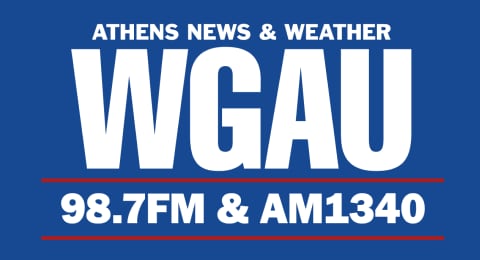KYIV, Ukraine — (AP) — President Volodymyr Zelenskyy's plan to end Ukraine's nearly three-year war with Russia has received mixed reactions from Western allies so far.
The "victory plan" that Zelenskyy outlined at home and abroad includes a formal invitation for Ukraine to join NATO and permission to use Western long-range missiles to strike military targets in Russia — two steps Kyiv's allies have been reluctant to support before.
U.S. backing is crucial if Zelenskyy is to get support from other allies for proposals he believes are necessary to strengthen Ukraine's position on the battlefield and ahead of any peace negotiations. But analysts say the Biden administration is unlikely to make a decision before the U.S. presidential election on Nov. 5, as it may not appeal to voters.
“They seem to be just doing very little now and waiting for the election,” said Phillips O'Brien, professor of strategic studies at the University of St. Andrews, Scotland. “So much of the strategy will live or die in Washington.”
Analysts said the plan is a step in the right direction for Ukraine's military efforts. They also described it as ambitious, given allies’ fears of escalation with nuclear-armed Russia. Ukraine has previously secured Western support for requests once deemed unrealistic, such as Patriot air defense systems and F-16 jets.
Presenting the plan now puts on the radar for the next U.S. administration, analysts said, though it's unknown how the next president will receive it.
After returning from making his case to the European Council, Zelenskyy said he expects the White House to provide feedback. “They will be here soon with some form of response,” he said.
Zelenskyy laid out the five-point plan as Ukraine's troops struggle to hold back Russian slow but steady advances in eastern Ukraine. The plan includes three "secret annexes" that were presented only to some leaders. It also addresses partners' concerns about Ukraine's strategy after the failed summer 2023 counteroffensive.
Zelenskyy described the main goal as “to strengthen us and force Russia to come to the negotiating table with all partners.”
The plan won’t immediately alter the battlefield situation, but it will help Ukraine wear down Russia and give more means to keep going in the attrition war.
“I think people were potentially expecting some sort of more operational plan on winning the war,” said Justin Crump, a former British tank commander who heads Sibylline, a strategic advisory firm. “That’s a naive opinion to have expected a plan to have provided operational details that would obviously be of use to the enemy.”
Some Ukrainian analysts blame the name of the plan, adding that it was likely chosen for marketing purposes. Ukrainian analyst Yurii Bohdan said the goal is get resources.
“To win such war (of attrition), Ukraine needs to increase its resilience and exhaust its opponent,” said Hlib Voloskyi, an analyst from a Ukrainian think tank, Come Back Alive Centre of Initiatives. “The side that falls last wins.”
U.S. reaction was muted and noncommittal, though it did issue a new $425 million package of security assistance for Ukraine the day that Zelenskyy presented the plan to lawmakers.
“It’s not my position to publicly evaluate his plan," Defense Secretary Lloyd Austin said. "We have been supporting him by providing security assistance in a major way for 2 1/2 years. We are going to continue to do that.”
In Europe, reactions ranged from categorical opposition to strong support.
French Foreign Minister Jean-Noël Barrot stated in Kyiv on Saturday that he will work with Ukrainian officials to rally other nations to get behind the proposal.
German Chancellor Olaf Scholz stood by his refusal to supply Taurus long-range cruise missiles to Kyiv.
“Our position is clear: We are supporting Ukraine as strongly as possible,” he said. “At the same time, we are taking care that NATO does not become a party to the war so that this war doesn’t culminate in an even bigger catastrophe.”
Hungarian Prime Minister Viktor Orbán, widely seen as having the warmest relations of any EU leader with Russian President Vladimir Putin, called Zelenskyy’s plan “more than frightening” in a Facebook post.
Kremlin spokesman Dmitry Peskov mocked Zelenskyy’s plan as “ephemeral,” and Russian Foreign Ministry spokeswoman Maria Zakharova called it “a set of incoherent slogans.”
Without an invitation to join NATO, Ukraine won't have an "assurance that its geopolitical future will not be a bargaining chip with Russia," said Ukrainian analyst Hlib Voloskyi.
Ukrainian officials say there are no other guarantees for Ukraine besides NATO to protect against Russia's aggression after the war.
Zelensky made ambiguous comments suggesting that nuclear weapons are the only other security alternative. Some thought he was talking about self-made nuclear weapons, sparking strong reaction among Ukrainians, many of whom were pessimistic about the prospects for an invitation to NATO.
Zelensky later clarified that he was highlighting the dire situation for Ukraine by referencing the 1994 Budapest Memorandum, in which Ukraine relinquished its nuclear arsenal in exchange for security guarantees from major nuclear powers, including the U.K., the U.S., and Russia.
Without Western support, Ukraine will struggle to endure a protracted war with Russia, backed by North Korea, Iran, and China. If Ukraine falls, it will be forced to negotiate on Russia’s terms.
“Getting help from outside is a key part of winning the war,” O’Brien said.
___
Associated Press reporters Danica Kirka in London, Geir Moulson in Berlin, Tara Copp and Aamer Madhani in Washington contributed to this report.
___
Follow AP's coverage of the war in Ukraine at https://apnews.com/hub/russia-ukraine
Copyright 2024 The Associated Press. All rights reserved. This material may not be published, broadcast, rewritten or redistributed without permission.

:quality(70)/cloudfront-us-east-1.images.arcpublishing.com/cmg/5AII74MR7NAW7AAJBUABHF6W2U.jpg)
:quality(70)/cloudfront-us-east-1.images.arcpublishing.com/cmg/XGDFDHGENJG5HLIZP3Z6CGOOTM.jpg)
:quality(70)/cloudfront-us-east-1.images.arcpublishing.com/cmg/HK5YACBL7RGLBJZDDTDSJU2AO4.jpeg)
:quality(70)/cloudfront-us-east-1.images.arcpublishing.com/cmg/KYZEGIHQBJBDBBBYTAWDHW3QW4.jpeg)
:quality(70)/cloudfront-us-east-1.images.arcpublishing.com/cmg/672WD73YB5DW3P3VYGXWCNY7FM.jpeg)
:quality(70)/cloudfront-us-east-1.images.arcpublishing.com/cmg/JMXU6MQENVA7NKWZDHTAM2PQ6I.png)
